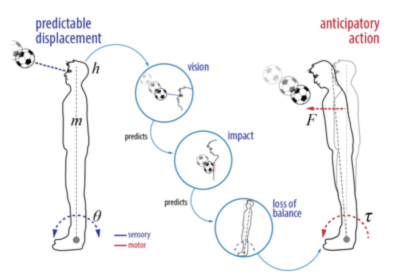SPECS
The brain can teach artificial intelligence a lesson or two: the neural mechanism of autonomous learning uncovered by researchers at IBEC
An international team led by SPECS Lab at the Institute for Bioengineering of Catalonia (IBEC) reveals how the brain improves through self-supervised learning combining an analysis of over three decades of research in neuroscience and artificial intelligence.
Researchers 4.0
 Fourteen engineers, mathematicians, biologists and robotics experts warn of the need to break stereotypes and increase the presence of women in the STEM sector, which today generates the most employment.
Fourteen engineers, mathematicians, biologists and robotics experts warn of the need to break stereotypes and increase the presence of women in the STEM sector, which today generates the most employment.
SPECS Lab featured on TV and Radio for its work on COVID19 and mental health
Researchers from the SPECS lab at IBEC have develop a new method to evaluate the mental health and wellbeing of people living under strict confinement measures such those during COVID-19 pandemic on April 2020. The study, conducted with people living in 17 countries, confirms that confinement measurements leads to a negative impact on the emotional wellbeing. The researchers also detected some personal situations that can entail a higher risk for the mental health and wellbeing.
School research projects on bioengineering developed at IBEC have great success
Last March Alex Pachón, a stutent that did his research project at IBEC won the CRACKS Prize awarded each year by the University of Girona (UdG) thanks to his School Research Project on nanobiotechnology applied to cancer medicine. Filotea Crasovan won the Foro de Gracia contest.
Alex’s work, entitled ‘The secret of oncological medicine hidden in the nanoworld’, is one of the 25 school research projects tutored last year by IBEC researchers.
The hippocampus orchestrates the cerebral process that allows us to recall memories
For the first time in humans, researchers from IBEC have simultaneously recorded the brain activity of the two key areas linked to memory: the hippocampus and the neocortex.
This study was made possible thanks to the voluntary participation of epilepsy patients who, due to their disease, have intracranial electrode implants. Making use of virtual reality, the participants performed spatial memory tasks. The taste of your favourite snack after school, your first kiss, that time you partied until dawn… Memories are a way of travelling into the past. Despite how easy it can be to remember a situation, the cerebral process taking place is complex and continues to be, for the most part, a mystery.
Researchers from the IBEC develop a Virtual Reality system to treat speech disorders
Researchers from the IBEC have developed a virtual reality-based system for rehabilitating patients with Broca’s aphasia. RGSa has been proven to improve communicative frequency and effectiveness in daily life, as well as sustaining improvements in testing after an 8-week period.
Rehabilitation to recover speech after brain damage is efficient, provided that it is carried out intensively, and can be included in relevant behavioural tasks. However, limited resources in healthcare systems cannot always provide said treatment in sufficient doses. Achieving a cost-effective, evidence-based rehabilitation method is one of the objectives targeted by the SPECS research group.
11th Barcelona Cognition Brain and Technology summer school taking place at IBEC’s newest location
 More than thirty students from all over the world have arrived at the UPC Campus Diagonal-Besòs for the 11th Barcelona Cognition Brain and Technology summer school (BCBT2018), an annual event co-organised by IBEC’s SPECS group.
More than thirty students from all over the world have arrived at the UPC Campus Diagonal-Besòs for the 11th Barcelona Cognition Brain and Technology summer school (BCBT2018), an annual event co-organised by IBEC’s SPECS group.
As in previous years, the summer school has invited top speakers in the fields of brain research, cognitive science, neuroscience, and artificial intelligence, including Tony Prescott from the University of Sheffield, who’s co-organiser of the event alongside SPECS group leader Paul Verschure and senior researcher Anna Mura. This year, the event is also supported by the Human Brain Project.
How perception shapes our actions
 Last Saturday, another “Classico” saw Messi and Ronaldo display their other-worldly skills and ball control. At the heart of their performance stands the amazing ability to control their bodies in anticipation of the movements of their team members, opponents – and especially the football.
Last Saturday, another “Classico” saw Messi and Ronaldo display their other-worldly skills and ball control. At the heart of their performance stands the amazing ability to control their bodies in anticipation of the movements of their team members, opponents – and especially the football.
These anticipatory motor actions are essential for sport, but also underlie our everyday behavior, from walking or grasping to riding a bicycle or typing on a keyboard. But how exactly are these actions controlled?

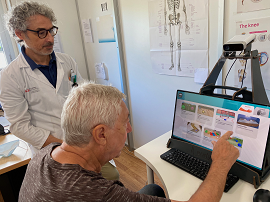
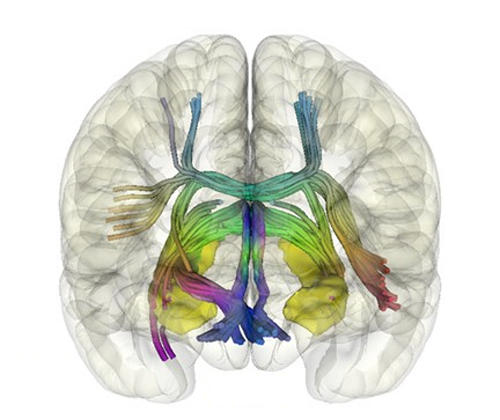
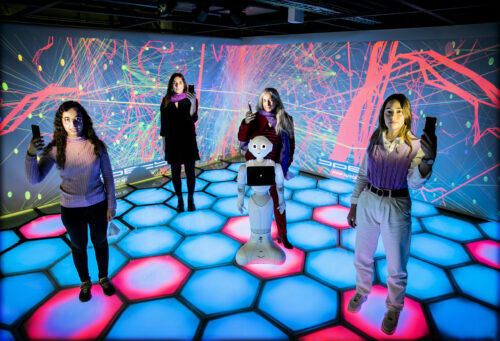
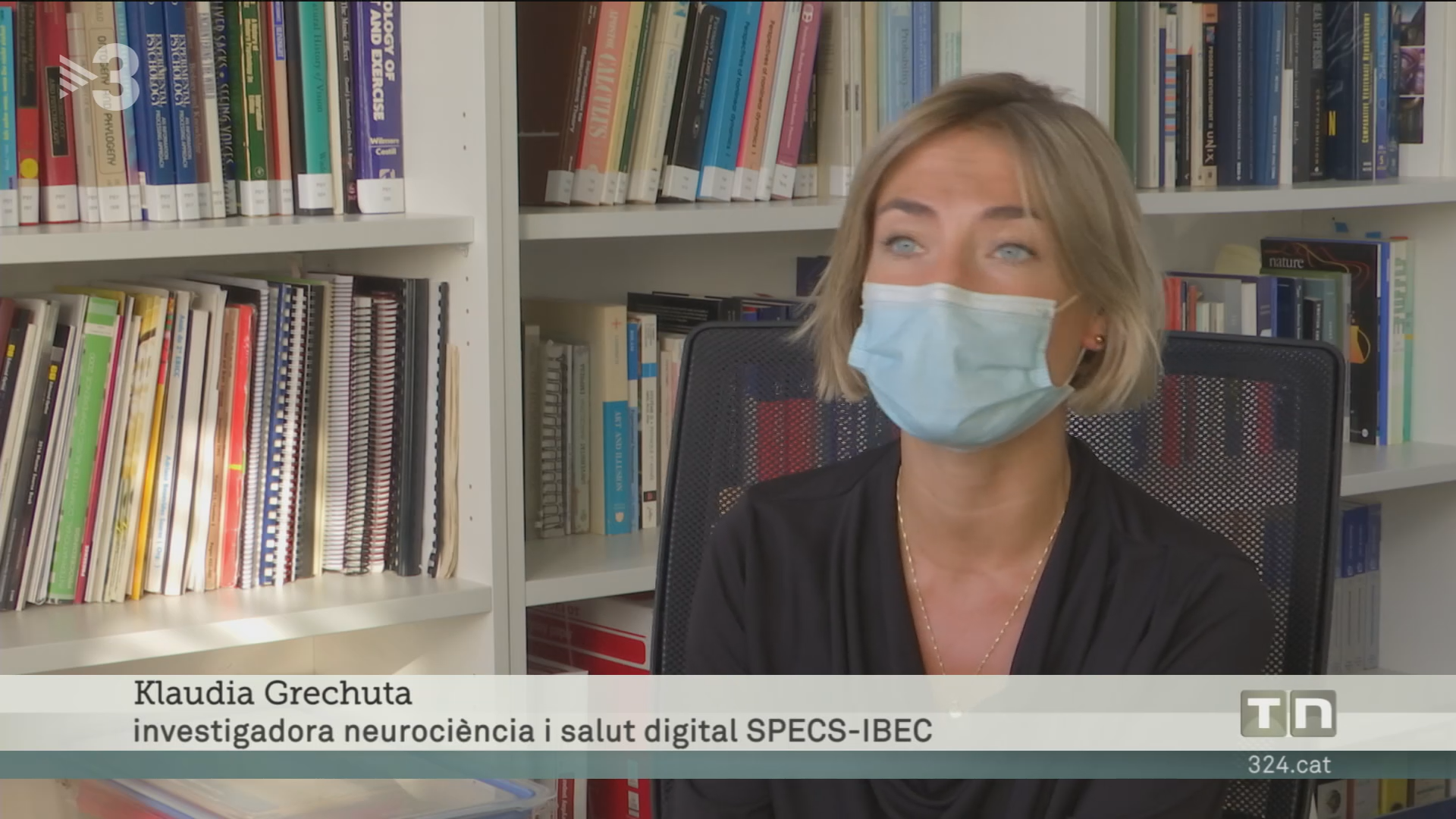
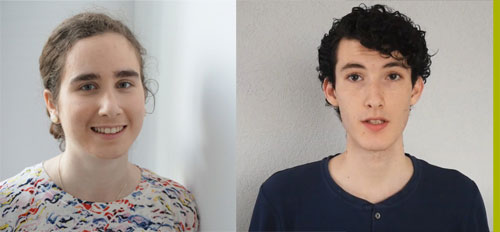
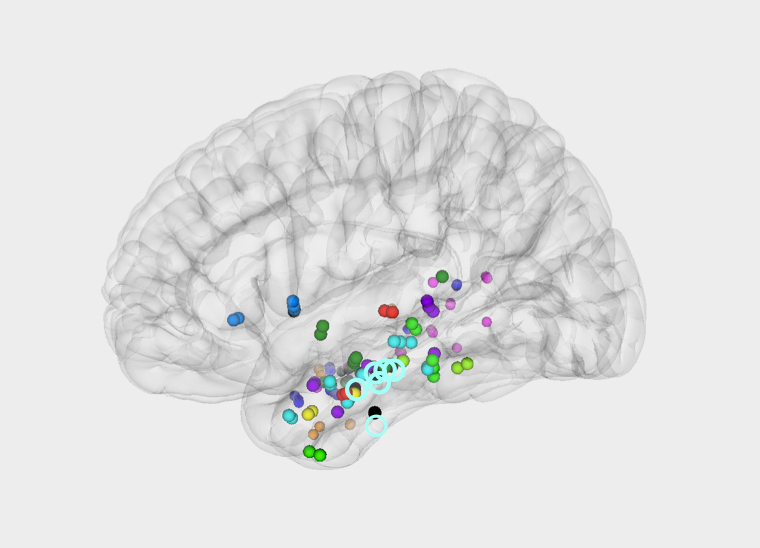
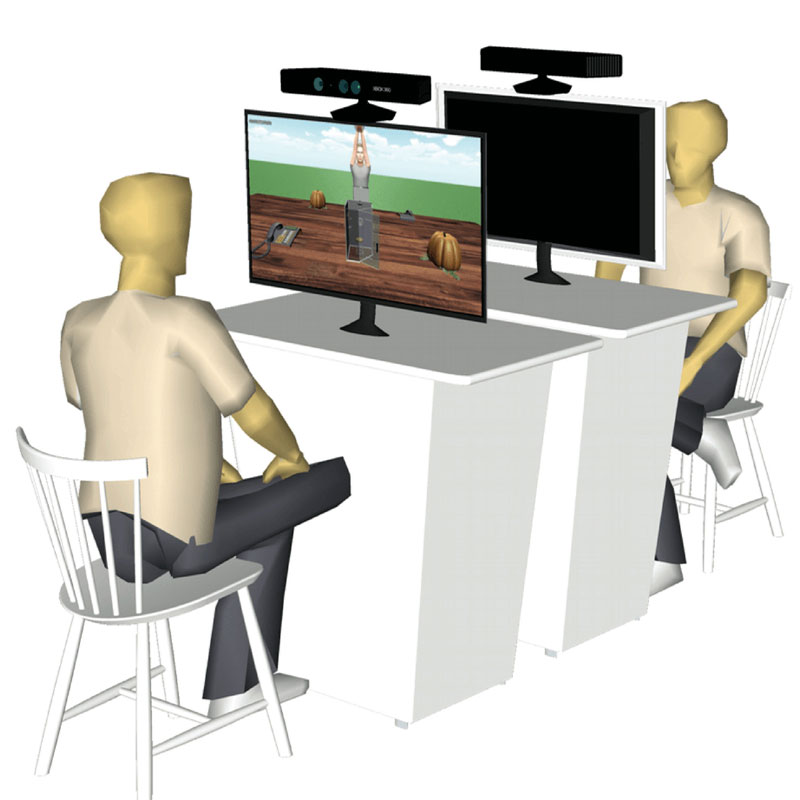
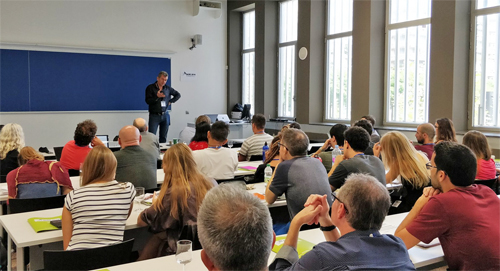
 More than thirty students from all over the world have arrived at the UPC Campus Diagonal-Besòs for the 11th Barcelona Cognition Brain and Technology summer school (BCBT2018), an annual event co-organised by IBEC’s SPECS group.
More than thirty students from all over the world have arrived at the UPC Campus Diagonal-Besòs for the 11th Barcelona Cognition Brain and Technology summer school (BCBT2018), an annual event co-organised by IBEC’s SPECS group.